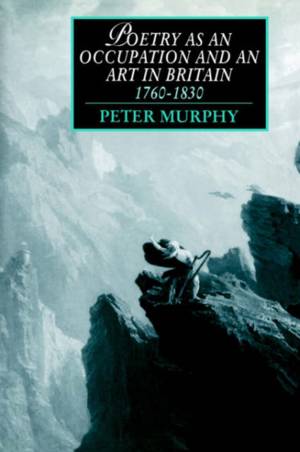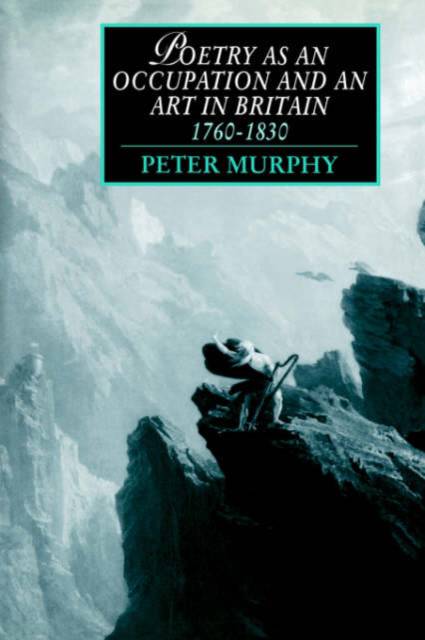
- Afhalen na 1 uur in een winkel met voorraad
- Gratis thuislevering in België vanaf € 30
- Ruim aanbod met 7 miljoen producten
- Afhalen na 1 uur in een winkel met voorraad
- Gratis thuislevering in België vanaf € 30
- Ruim aanbod met 7 miljoen producten
Zoeken
€ 64,95
+ 129 punten
Uitvoering
Omschrijving
Peter Murphy's book examines the tension between the material, economic pressures motivating poetry as an occupation, and traditional notions of the forces of literary history defining poetry as an art. It focuses on five writers in the Romantic period: James MacPherson, Robert Burns, James Hogg, Walter Scott, and William Wordsworth. The first four are Scottish; the economic and linguistic status of Scotland during the period makes its writers especially interesting as examples of poetic ambition. Murphy's study then crosses the border into England, offering a new perspective on Wordsworth's poetic ambition and career. Murphy's engagement throughout with the ballad revival yields fresh insights into some major concerns of the Romantic period: the interest in the primitive and the simple, experiments with poetic form, the problematics of loss, and the emergence of a new literary culture.
Specificaties
Betrokkenen
- Auteur(s):
- Uitgeverij:
Inhoud
- Aantal bladzijden:
- 284
- Taal:
- Engels
- Reeks:
- Reeksnummer:
- nr. 3
Eigenschappen
- Productcode (EAN):
- 9780521020862
- Verschijningsdatum:
- 6/10/2005
- Uitvoering:
- Paperback
- Formaat:
- Trade paperback (VS)
- Afmetingen:
- 152 mm x 229 mm
- Gewicht:
- 417 g

Alleen bij Standaard Boekhandel
+ 129 punten op je klantenkaart van Standaard Boekhandel
Beoordelingen
We publiceren alleen reviews die voldoen aan de voorwaarden voor reviews. Bekijk onze voorwaarden voor reviews.











